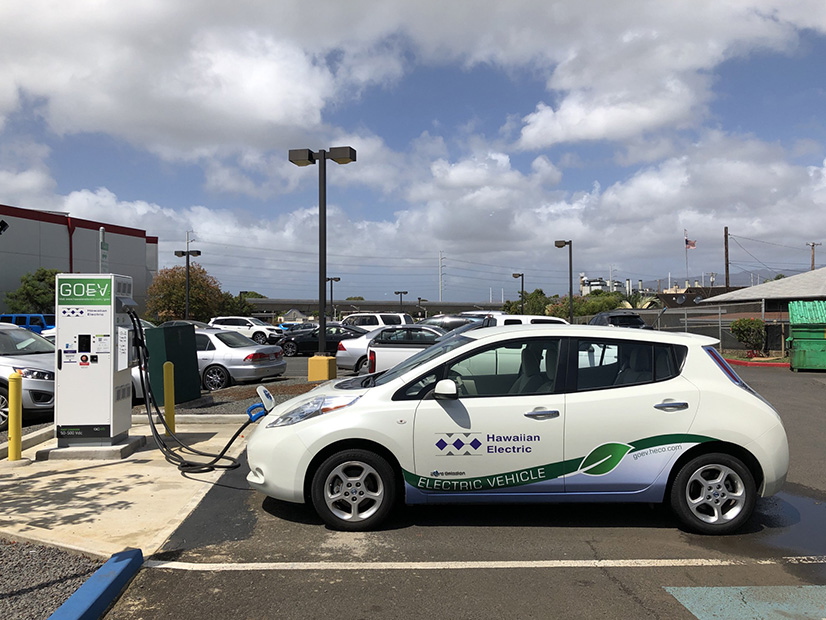
State regulators last week approved Hawaiian Electric Company’s (HECO) $4.98 million pilot to install electric vehicle charging infrastructure across the state in a bid to incentivize commercial customers to invest in charging ports.
The pilot program, Charge Ready Hawaii, tasks HECO with building the underlying infrastructure so that commercial customers only have to pay for the installation and maintenance of the EV charging ports themselves.
HECO will build “make-read” infrastructure in 30 locations across the state — 14 on Oahu, 8 on Maui and 8 on Hawaii Island, enough to support an estimated 180 EV charging ports over a three-year period. The pilot program will target commercial sites, multi-unit dwellings and locations for EV fleet parking.
HECO defines make-ready infrastructure as including “all infrastructure that the customer would otherwise be responsible for,” such as transformer upgrades and line extensions, “but excludes the charging stations, which are provided by the customer.”
Because of the high cost of installing EV charging infrastructure, HECO noted, the pilot program will provide an easier way for customers to “realize fuel savings relative to gasoline when they are charging at pilot participating commercial locations.”
HECO said emissions reductions “are anticipated” from the program, but that it could not provide specific figures. The data collected from the pilot will help with modeling future energy loads on the grid as the transportation sector adopts more EVs, the utility said.
HECO also noted its “openness” to prioritize building in underserved communities.
Based on expectations for future EV adoption in Hawaii, HECO estimates it will recover the $4.98 million cost of the pilot program in 10 to 12 years.
In approving the pilot, the Hawaii Public Utilities Commission said Charge Ready Hawaii will “yield meaningful data acquisition and experience that will enhance the development of a more permanent EV rate scheme and will inform the continued development of EV charging infrastructure.”


